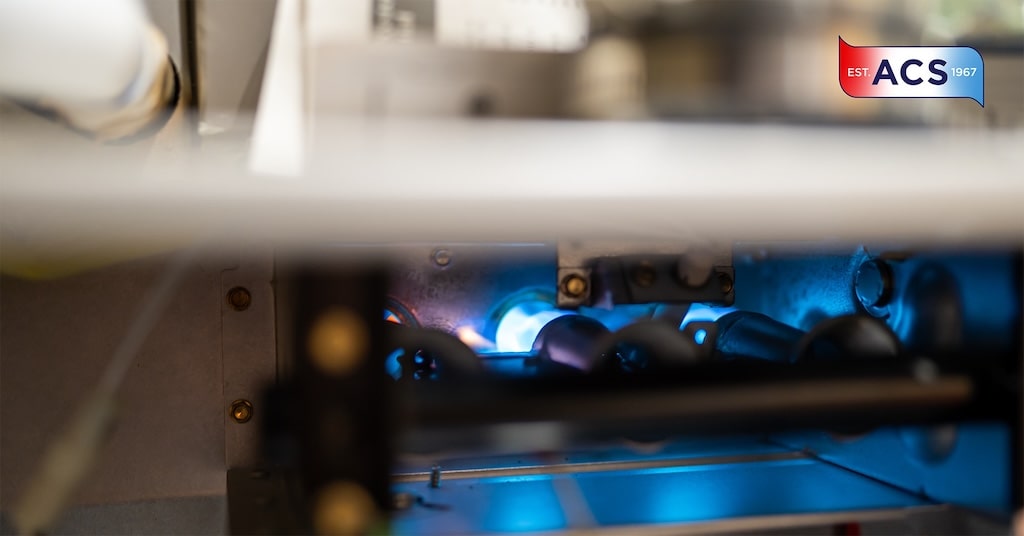With winter approaching, it might be time to upgrade your heating system. If your existing furnace has reached its limit, you’ll want to consider a newer, more efficient model of either gas or electric power. While both will heat your home as expected, one might be a better fit for you based on various factors.
At ACS, we offer high-quality heating services and exclusive industry insight to help you choose the best-fit heating solution for your home. Our HVAC-certified technicians offer premium installation, repairs, and system replacements for all models of heating equipment. If you’re thinking about how to heat your home, we’re here to help. We have a helpful comparison of electric and gas furnaces to help you decide what’s right for you.
In this article, our HVAC experts discuss the differences between electric and gas furnaces to help you decide which is right for you. They will explore the following topics:
-
- How an electric furnace works
- How a gas furnace works
- The differences between electric and gas furnaces
How Does an Electric Furnace Work?
An electric furnace operates through – you guessed it, electricity! Ignited by electric power, the furnace will pull cold air into its exchanger, where it is then heated over hot coils. The furnace will push this warm air into the system’s ductwork using a blower fan. This heat will then circulate throughout the home. Like any HVAC system, users can signal their electric furnace through their thermostat controls.
How Does a Gas Furnace Work?
Gas furnaces produce heat naturally. When the system’s pilot light ignites the burner, it creates a flame that warms up a metal heat exchanger. This exchanger then heats cold air from its intakes, where the air is then pushed through the system’s air ducts by a blower. The furnace’s flame will remain lit and idle until the home’s temperature falls below the thermostat’s heat setting. When this happens, the thermostat will direct the furnace to ignite its burners and heat its heat exchangers again.
Which Furnace is Right for Me?
Electric and gas furnaces both serve the same purpose. However, because of their difference in fuel, they present several stark differences in cost, installation, safety, and more. Before you decide which furnace is best for you, we recommend evaluating the following factors:
Cost
When it comes to upfront costs and installation, gas furnaces tend to be more pricey. Because of their combustive components, gas furnaces require heftier, more expensive installations. They also require more upkeep, meaning you’ll likely have to pay more for additional maintenance and repairs than an electric model. However, remember that electric furnaces use more energy and therefore cause higher power bills. In that case, you might choose the higher upfront costs of a gas furnace in exchange for lower monthly energy bills.
Noise
Electric furnaces are the best choice if you’re sensitive to noise. Gas furnaces produce louder noises during operation due to their many parts and complex designs. But with electric furnaces, you won’t hear a peep!
Lifespan
Electric furnaces have longer lifespans than their gas counterparts. Most electric systems last up to 30 years, while gas furnaces only last 10 to 20 years. Gas furnaces wear out quicker, especially if not regularly serviced and cleaned.
Energy Usage
A gas furnace is the obvious choice if you’re looking to cut down on energy consumption. Gas furnaces can circulate heat quicker than electric furnaces. Not to mention, they can also heat the same amount of space while using less energy. This is especially true in colder climates, as electric furnaces will take much longer to generate heat in these areas.
Safety
Electric furnaces are the best option for safety-conscious households. With gas furnaces, you are at risk of potential carbon monoxide exposure. However, this is rare if you keep up with system maintenance and repairs. If you want to avoid carbon monoxide hazards altogether, put your mind at ease with an electric furnace.
HVAC Heating and Cooling with ACS
If you need furnace repair, replacement, or maintenance, you can count on ACS to get the job done. With decades of valuable industry experience, our certified HVAC technicians promise nothing but the best! Connect with our team today for top-quality HVAC maintenance, repair, or installation in Covington, Milledgeville, and surrounding areas.



